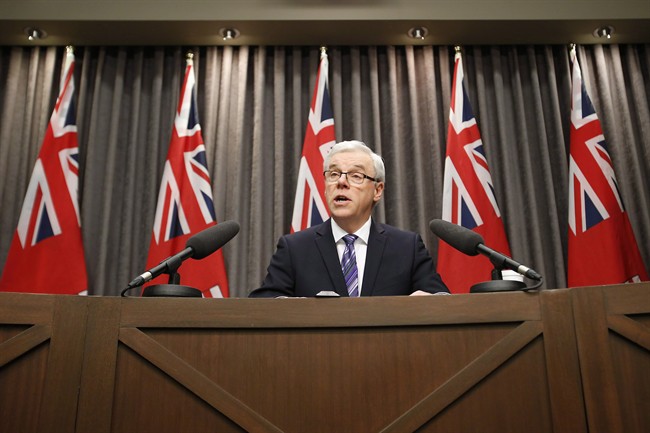WINNIPEG – Things were not supposed to be this hard for Greg Selinger.

After taking over Manitoba’s governing New Democrats from his popular predecessor Gary Doer, Selinger led the NDP to a record 37 of 57 legislature seats in 2011.
With the subsequent resignations of both opposition party leaders, he seemed assured a smooth ride ahead.
But it wasn’t long before things turned.
In 2012, the government expanded the provincial sales tax to cover tattoos, haircuts, insurance policies and other items. The next year, the government raised the tax to eight per cent from seven without a referendum as required under the province’s balanced budget law.
Selinger — a policy wonk with three university degrees in social work and public administration — has an approach focused more on policy solutions than popularity, one analyst says.
“(Doer) always had his finger to the wind … and he would retreat on issues and not take bold steps to which big political risk was attached,” says Paul Thomas, professor emeritus of political science at the University of Manitoba.
“The problem with Selinger … is that when he makes up his mind on an issue … it’s hard to change his mind, because he’s committed a lot of intellectual effort to coming to a position … and in this case, he didn’t seem to be listening to advice.”
Sources have told The Canadian Press that Selinger and then-finance minister Stan Struthers surprised their cabinet colleagues in March 2013 when they told them about the tax hike two weeks before the budget.

Get breaking National news
As the NDP’s popularity plummeted in opinion polls, Selinger responded that the increase was needed to preserve front-line services and fund much-needed infrastructure projects.
Last fall, some cabinet ministers openly challenged Selinger’s leadership and pointed to the lack of consultation on the tax. That dissent led Selinger to where he is now — fighting for his political survival in a leadership vote Sunday.
Selinger, 64, entered provincial politics in 1999 after time as a Winnipeg city councillor and, before that, serving as a social worker in the city’s core. He comes from the social-activist side of the NDP and was instrumental in setting up an inner-city economic development agency that still exists.
His interest in both economics and social justice stems from his youth. He was raised in Regina by a single mother who struggled before moving to Winnipeg and establishing a clothing store he would help run.
He developed a fascination with economics and read the Financial Post as a teen. “I was just interested in how things work and how government and the economy work together,” he recalled in a 2011 interview.
Selinger served a decade as finance minister under Doer and focused much of his energy on education and economic opportunities for youth. He was determined to maintain that focus when he became premier in 2009 and set the bar for success at developing a “modern economy that offers good quality jobs to a well-educated group of citizens.”
Selinger’s government has established apprenticeship programs, introduced new financial relief for post-secondary students and expanded trade schools. He has also developed safeguards for the poor such as strict limits on payday loan companies.
But he has had to navigate tougher financial waters than Doer did, and chose a path called bold by his supporters and foolhardy by his critics. He sees increased spending, via borrowed money, as a way to stimulate the economy, and makes no bones about running several deficits in a row.
“He became better at retail politics, but he never lost what I would describe as an academic orientation and I think his primary interest was always in the substance of policy,” Thomas says.
“Slipping into the premier’s job (from finance minister) is a big step.”
Thomas says regardless of Sunday’s outcome, Selinger will be remembered for having a “long and very successful political career.” But he may also be known for misreading the mood of the public and his own caucus.
“There are some people in the cabinet who have their own following,” says Thomas, pointing to Selinger leadership rivals Theresa Oswald and Steve Ashton. “To dismiss their opinions and say, ‘It doesn’t matter. I’ll do this on my own’ is risky.
“He seemed to be prepared to take a big risk and it backfired on him.”





Comments